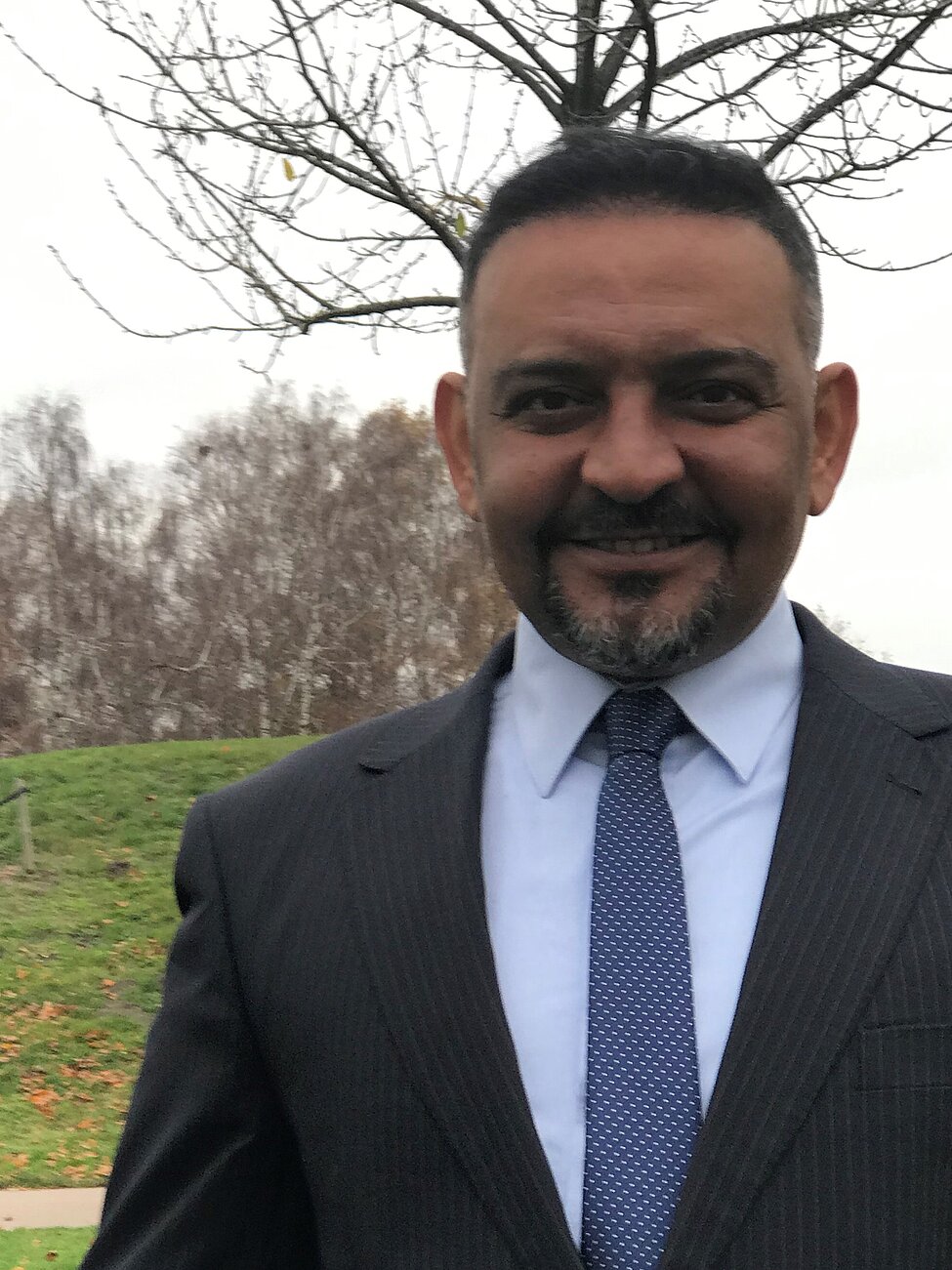SAR är ett nätverk som arbetar för att skydda principerna om akademisk frihet och mänskliga rättigheter för forskare som lever under hot. Anas Al Khabour studerade arkeologi vid universitetet i Damaskus, samt vid University Autonoma, i Madrid, där han även disputerade i ämnet. Därefter har han arbetet som ledare för Nationalmuseet i Raqqa i Syrien under åren 2003 till 2008. Han har även varit curator för Mellanösternavdelningen vid Världskulturmuseet i Göteborg samt arbetat vid universitet i Spanien, Belgien och Sverige och gjort forskningsvistelser vid universitet i Tyskland, Frankrike och Holland.
I Lund kommer Anas framför allt att arbeta med två olika forskningsprojekt. Det första handlar om studier av materiell kultur och identitet från Kura-Araxes-kulturen, vilken sträckte sig från södra Kaukasus genom Anatolien och Iran till Levanten. I projektet diskuteras arkeologiska problem kring produktion och spridning av materiell kultur i Främre Orienten under tredje och fjärde årtusendet före Kristus. Projektet använder olika teorier och metoder för att diskutera identitet och materiell kultur i relation till exempelvis bosättnings- och begravningsmönster.
Det andra projektet handlar om skydd av kulturarv i händelser av väpnad konflikt. Här fortsätter Anas ett tidigare projekt om kulturarv som skadats under det pågående kriget i Syrien. Olika hotade arkeologiska platser har katalogiserats inom det område som kontrollerades av Islamiska Staten i både Syrien och Irak. Projektet syftar till att skapa mekanismer för att skydda kulturarv i händelse av krig, motverka illegal handel med antikviteter samt att planera för fredstida återställande av dessa platser.
Vi är mycket glada över att ha lyckats knyta Anas Al Khabour till institutionen och ser fram emot att arbeta med honom under kommande år. Hans projekt fyller en forskningslucka vid institutionen. Anas kommer även att vara kopplad till institutionen för kulturvetenskaper.
New member of staff – “Scholar at Risk”
Dr Anas Al Khabour from Syria, has joined our department as post doc in Classical Archaeology for the coming year. Dr Al Khabour is a post doc in the project Scholars at Risk, SAR, financed by Lund University and Riksbankens Jubileumsfond. SAR is network of Universities around the globe, working to defend the principles of academic freedom and human rights for scholars worldwide. Dr Al Khabour studied archaeology at Damascus University, before doing his MA and PhD at the University Autonoma in Madrid. After graduation, he has been working as director of the National Museum of Raqqa in Syria, from 2003 until 2008 and as curator of the Ancient Middle East Collection at the National Museums for World Cultures in Sweden. He has also worked for various European universities in Spain, Belgium and Sweden as well as done short-term research visits in Germany, France and Netherlands.
In Lund Dr Al Khabour will work on two different research projects in relation to Ancient Middle East archaeology. The first project concerns material culture and identities from the Kura- Araxes Culture, which extended from the Southern Caucasia region through Anatolian and Iran to the Levant. Based on the fundamental problem in archaeology concerning the processes and significance of the transmission of material culture in the Near East during the III-IV millennia B.C, the project applies archaeological theories and methods for the study of identity and material culture. This research addresses the related challenges of settlement patterns, burial patterns of pastoral tribes, artistic and architectural styles.
The second project relates to safeguarding cultural heritage in the event of armed conflict. This project continues Dr Al Khabour’s previous work regarding damaged cultural heritage in northern Syria, which has visualized threatened archaeological sites in the territory occupied by the Islamic State, in Syria and in Iraq. This project will provide the global research community- heritage authorities as well as the public - with important knowledge for future research and for the management of damaged cultural heritage sites, with an eye towards illicit trafficking in antiquities, planning for post-war restoration, commemoration and reconciliation.
We are very happy that we have been able to attach Dr Al Khabour to the department and are looking forward to working with him. His projects fills previous gaps in our research portfolio. Dr Al Khabour will also partly be connected to the Department of Arts and Cultural Sciences.

